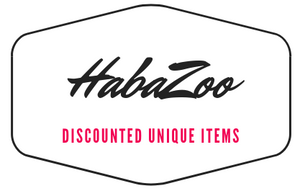Starbucks and Kraft Could Have Negotiated a Better Distribution Deal.
Starbucks and Kraft Could Have Negotiated a Better Distribution Deal.
Starbucks is the world's largest coffee retailer with revenue exceeding $6 billion. This position was achieved by creating a powerful brand known for quality and excellence. This brand was severely tainted in its 3-year public divorce with Kraft Foods which resulted in a $2.75 billion loss for Starbucks. This forced Starbucks to issue debt worth over $750 million and dig into its cash reserves resulting in a nightmare for its shareholders during the third quarter of 2013. The sheer gravity of this mess leads one to wonder what could have been done differently to have a more amicable split between these two behemoths. So below is an in-depth assessment of the different choices that could have been made at the beginning of their distribution deal and the lessons that can be drawn from this affair.
Contracts that automatically renew are always bad for business.
The deal that had been negotiated by Starbucks and Kraft was set to renew itself automatically in March of 2014 and then again every ten years. Structuring a deal this way is always bad for both parties involved because it carries the risk of not being able to exit the deal when it is no longer financially viable to be in it. A coffee market is a place that is constantly evolving due to changing consumer demands, new government regulations and shifting management strategies. This means that flexibility is something you always want to have in order to meet these challenges. A perpetual deal creates a scenario in which one party can abuse the other because they know that the other side can't exit the deal without suffering immense financial liabilities. In this particular case, Starbucks felt that Kraft was being unfair but they couldn't exit the deal without paying a steep price for it.
Contracts should leave room for additional differentiated products.
At the core of the conflict between Starbucks and Kraft was that the former wanted the flexibility to incorporate a new brand of single-serve coffee pods. (1) This product was selling very fast at other retail chains but it worked against Kraft's interests because the deal that had been signed in 1998 guaranteed that Starbucks would only sell coffee pods that work in Kraft's Tassimo machines. Starbucks felt it was losing its coffee market share because of this inflexibility but Kraft argued that they had invested a lot of money based on a market strategy that relied on the contractual terms agreed upon. In the end, the arbitrator sided with Kraft costing Starbucks billions. (2) All this could have been avoided if Starbucks and Kraft could have agreed upon a more flexible model because this would have profited both parties immensely.
A smart contract anticipates uncertainty and an end to a relationship.
At the time this deal was originally signed in 1998 it must have seemed very astute but that is not how it will be remembered in history. The contract failed to create terms for how much either party would be entitled to in case of disagreement. Cancellation penalties should have been negotiated in advance and more importantly some room should have been created to handle changing industry conditions.
Sources:
1. Strom, S. (2013). Retrieved from https://nyti.ms/2LpgzX1
2. Baertlein, L. (2013). Retrieved from https://reut.rs/2vEk1SY
